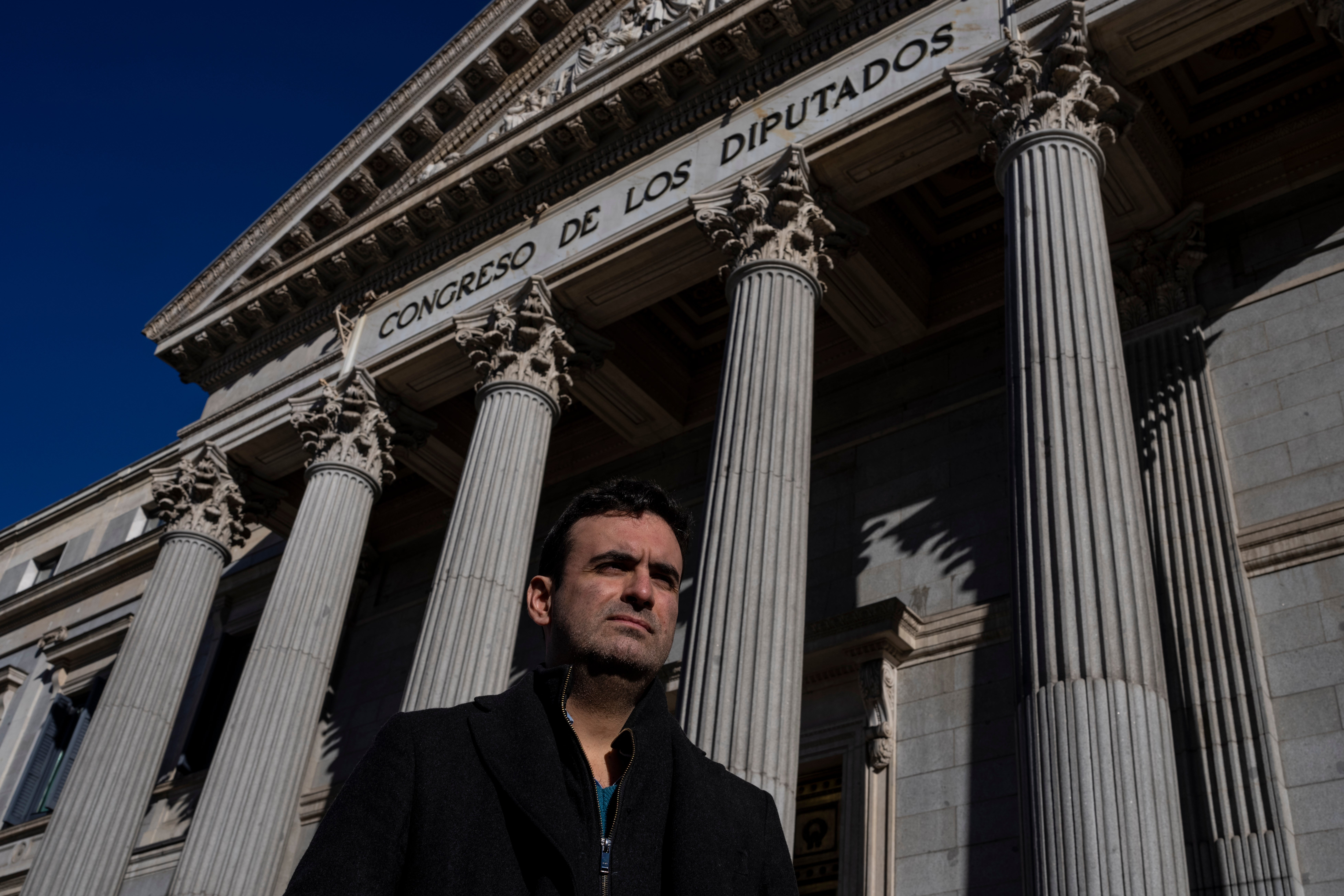Spain: Clergy abuse victims hopeful at signs to end impunity
After decades of neglect, victims of sexual abuse by the Spanish clergy say that they are finally seeing momentum building in their quest for real accountability and reparations

Your support helps us to tell the story
From reproductive rights to climate change to Big Tech, The Independent is on the ground when the story is developing. Whether it's investigating the financials of Elon Musk's pro-Trump PAC or producing our latest documentary, 'The A Word', which shines a light on the American women fighting for reproductive rights, we know how important it is to parse out the facts from the messaging.
At such a critical moment in US history, we need reporters on the ground. Your donation allows us to keep sending journalists to speak to both sides of the story.
The Independent is trusted by Americans across the entire political spectrum. And unlike many other quality news outlets, we choose not to lock Americans out of our reporting and analysis with paywalls. We believe quality journalism should be available to everyone, paid for by those who can afford it.
Your support makes all the difference.After decades of neglect, victims of sexual abuse by the Spanish clergy say that they are finally seeing momentum building in their quest for real accountability and reparations.
On Tuesday, Spanish lawmakers took the first step toward opening a parliamentary inquiry on the issue, a move that victims hail as a potential game-changer.
Prosecutors are also stepping up efforts to dig deeper into existing and new allegations. And Spain’s left-to-center government is gauging whether to back the parliamentary probe or to launch another independent effort.
“It looks like as if public institutions have finally realized that the raping of children is of general interest, a grave violation of human rights and that the state should intervene,” said Miguel Hurtado, who has campaigned against impunity since disclosing his own account of being abused at a monastery in northeastern Spain
“We can't say we are happy until we see results, but this is a very hopeful moment for those of us fighting to be noticed for years,” said Fernando García Salmones, spokesman of the Robbed Childhood Association of sexual abuse victims.
García Salmones, who is among the few victims who have received compensation from a religious order, said that the question is no longer whether Spain should investigate the abuses. The debate, he said, has shifted: “Now it's more about how to do it, and who should do it.”
The stacking up of different initiatives comes after Spain's leading newspaper, El País, documented at least 611 cases of abuses perpetrated by priests, members of religious orders and people working for them over several decades, involving at least 1,246 victims.
In late December, the paper shared a list including some of the abuses it had found with Pope Francis who has tried to sensitize the church to the problem of clergy abuse and passed laws to hold the hierarchy accountable for covering it up.
The Vatican hasn’t publicly responded to the El País reports or the database. Previously, it has commented after independent reports have produced their findings.
But Spanish media have reported that the pope breached the topic during a meeting last month with emissaries of the Spanish Episcopal Conference.
The body representing the bishops of all Spain has rejected opening up a comprehensive investigation and instead encourages victims to come forward and report their allegations to offices that it has set up in each of the country's dioceses.
“The only ones missing in this latest wave of efforts are the Spanish bishops, who should step aside and refrain from obstructing efforts to investigate,” said Hurtado, adding that the Catholic Church in Spain should open up its archives and be ready to financially compensate victims.
"Politicians should pass laws to make sure that bishops go to jail if they covered up abuse cases,” he added.
El País has reported that only nine of Spain’s 31 dioceses have reached out to the newsroom or directly to some of the victims in the paper’s investigation.
The Episcopal Conference didn't immediately respond to requests for comment on the government and lawmakers' moves. But, in public remarks, officials have questioned the veracity of the allegations compiled by El País and other media.
Victims said that an inquiry backed by political parties could change things.
Speaking Tuesday outside the Congress of Deputies in central Madrid just as a majority of left-wing votes backed the proposal to set up a parliamentary inquiry, Hurtado said that he has never seen real action as close as now.
The final go-ahead for a parliamentary committee to investigate the abuses must be given in a vote later this month with the outcome likely to hinge on the Socialist Party of Prime Minister Pedro Sánchez, who is meeting with clergy abuse victims later this week.
On Tuesday, government spokeswoman Isabel Rodríguez said that the Cabinet was studying “all the available formulas” to investigate the allegations.
“We want these abuses to be investigated, to repair the victims’ pain and, especially, for this not to happen never again,” she said during a regular media briefing.
__
AP reporters Barry Hatton in Lisbon, Portugal, and Nicole Winfield in Rome contributed to this report.